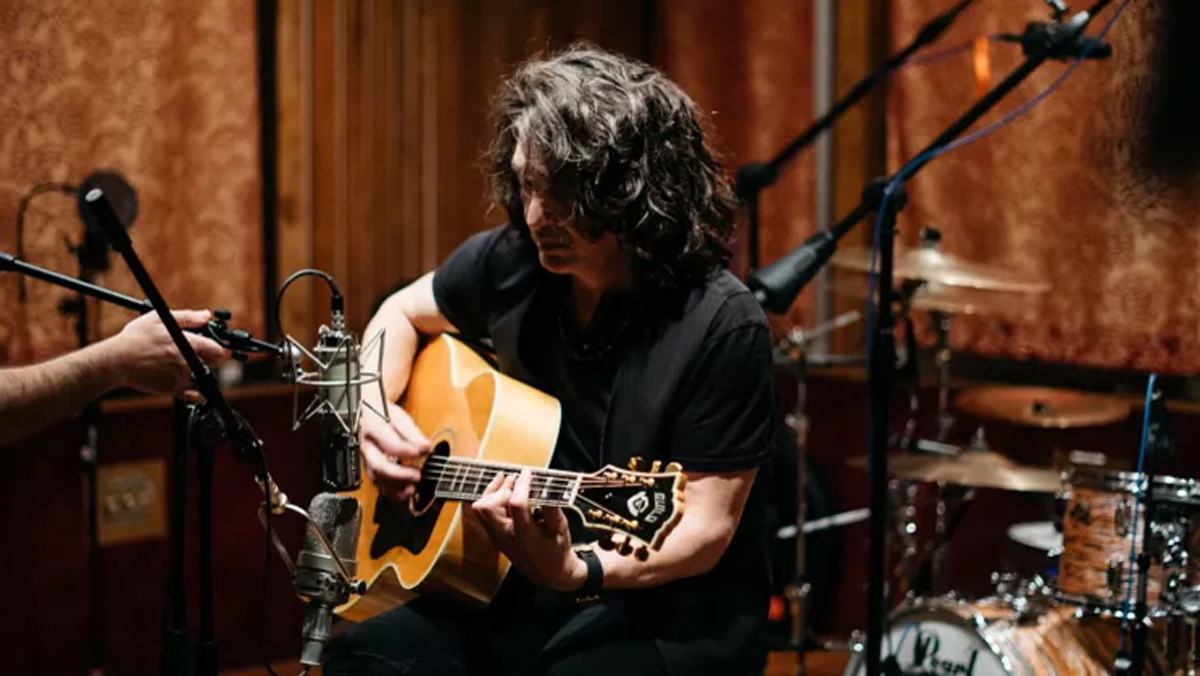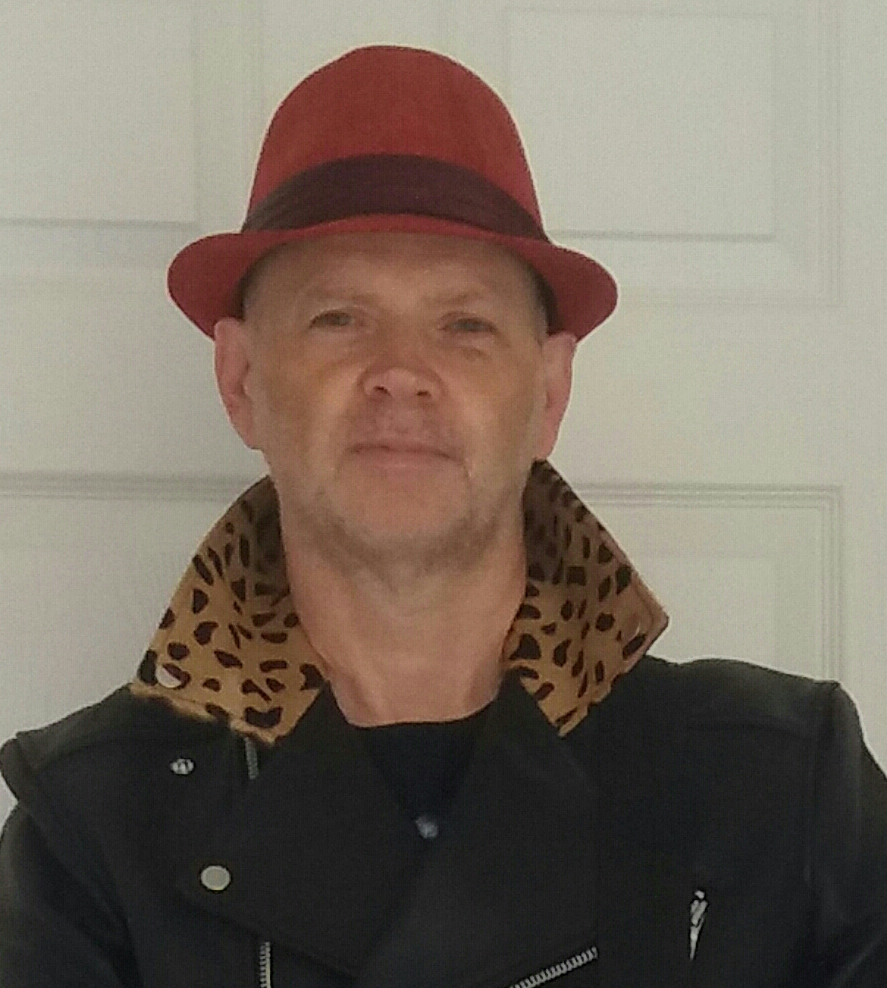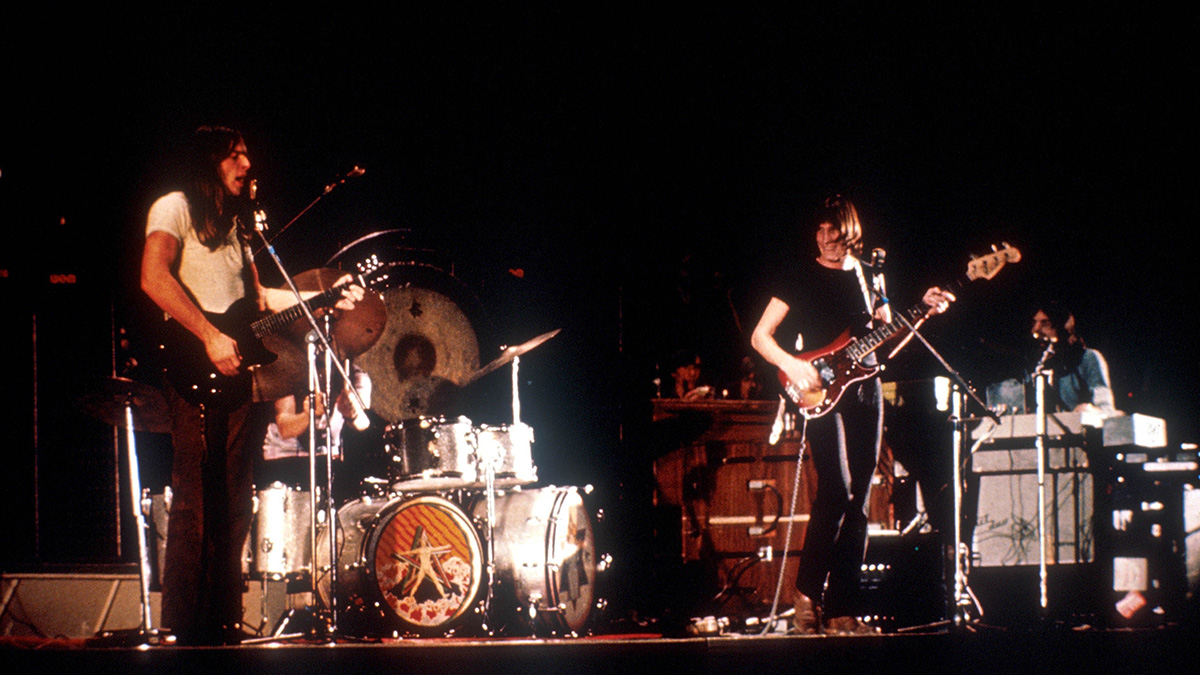Paul Stanley on Soul Station: "I got into music for the freedom of it. If it’s not to everyone’s liking, I guess nothing is"
The perennial guitarist discusses his soul- and R&B-flavored side project, the group's new ear-catching album Now and Then, and the possibility of a Kiss reunion record down the line

Now and Then, an album that founding Kiss guitarist Paul Stanley released earlier this year with his “other” band, Soul Station, might catch some Kiss fans off-guard, especially if they haven’t been paying attention to his recent extra-curricular activities.
For instance, if you’re expecting Kiss-style rock, or even the kind of fare served up on Stanley’s previous solo albums, 1978’s Paul Stanley and 2006’s Live to Win, you’re in for a shock.
This time around, Stanley has delivered a set of classic Motown and Philly soul covers, with a handful of like-minded originals sprinkled in for good measure.
Rather than a slavish retread of the golden age of soul, Stanley has revisited the likes of You Are Everything, The Tracks of My Tears and Just My Imagination, and invested them with punchier, fuller arrangements.
Stanley’s vocals are a revelation, bravely taking on songs synonymous with the superlative vocal stylings of Smokey Robinson and Al Green, and coming out with creditable performances that might actually silence at least some of the Kiss-haters who accused the band of lip-syncing on recent tours.
For people who might not be aware of your Soul Station shows, Now and Then will probably come as a surprise. Are you hoping you can bring these songs to a different audience?
"I’m not doing this to make converts, I’m doing it because I love this music – it’s music I grew up with. I was fortunate enough to put together a band of amazing musicians who feel the same about it and want to see this music get the props and attention it deserves. These songs are timeless and the idea of a living, breathing, flesh-and-blood band playing this music was something I wanted to hear."
Get The Pick Newsletter
All the latest guitar news, interviews, lessons, reviews, deals and more, direct to your inbox!
The album mixes nine classics with five songs you wrote for the album. For the uninitiated, it would be hard to tell which were the oldies and which were your own songs, which is quite an achievement.
"I’m totally comfortable writing in this style; I wrote those songs because I was living Soul Station. I’m humbled by the comments that so many people have made where they’ve used the word 'seamless.' The old songs and the new songs go hand in hand. I didn’t want to write new, improved versions of the old songs; I wanted to pick fruit from the same tree."
How much guitar did you play on the album?
"I played rhythm parts and acoustic rhythm on the basic rhythm tracks to accentuate the dynamics and make sure that the feel was right. There are licks on Lorelei and Tracks of My Tears that I was playing along with in the studio and everybody said we should use those. I was thinking of Curtis Mayfield, that kind of approach.
"The accompaniment that guitars tend to do on this style of music is more about flourishes; they almost float around like a butterfly. A lot of times, the guitar in classic soul serves to drive the rhythm.
What made Jimi Hendrix interesting is that, besides his blues roots, he clearly had roots in soul and R&B
"I think part of what made Jimi Hendrix interesting is that, besides his blues roots, he clearly had roots in soul and R&B. You hear him accompanying himself with those great Mayfield licks, especially on something like Little Wing.”
You’ve worked with guitarist Rafael Moreira for some time now. He played on your last solo album and solo tours. What does he bring to the mix?
"I know he can play anything. He’s pure; we’re very much on the same page. I still remember the first day of rehearsals, before we went out for my solo tour for Live to Win. I said to him, 'You’re really good; you’re so good that you don’t know these songs and you’re faking it.' [Laughs] He said, 'You’re absolutely right; I’m gonna go home and learn them.'"
How did you work up the songs?
"I played them on an acoustic and fooled around with the capo. A lot of those songs were written on piano, so as a guitarist I had to think piano and think of chord changes that were more piano based. I had to take a different approach."
Your vocals are very much in the Smokey Robinson falsetto range. Is that a comfortable range for you?
"It is very easy, actually. It’s a part of my voice that I’ve always had. I’ve used it from time to time. In The Phantom of the Opera [Stanley appeared in the title role in a 1999 Toronto production of the show] there’s a scene that’s in falsetto – and the middle section of I Was Made for Loving You as well, of course.
"It’s a comfortable range. I’m not Smokey Robinson or Eddie Kendricks, but the idea isn’t to imitate; it's to get the intent of the songs and then deliver them my way, staying true to the original without imitating it."
It is interesting that you've adapted the original arrangements and made them a little fuller and punchier. Was that done with an awareness of the way modern music is so compressed that everything has to be louder in order to compete?
"It stays true to the originals. It’s a bit like the originals on steroids, you know? There is quite a bit more size. Live, the band is a wall of sound, it is all-encompassing. A lot of people have heard the album and said we really captured the sound of the originals, but that's not really the case.
"I think we captured the passion and the vibrancy and joy of the originals. I think the music sounds true to the past. But sonically, it's very much in the present."
Your previous solo albums had some mellow moments, but you never actually recorded any soul songs. Was that because you felt there was a certain expectation of you from Kiss fans?
"My first solo album was very much a reflection of who I was at that time. I thought my second, Live to Win, was too much of an effort to sidestep what I normally do, and that’s not necessarily a good thing. In hindsight, I have some issues with that album in that I avoided the obvious. I think it would have been better served to stick with some of those roots of mine."
Do you feel comfortable up front without a guitar on the Soul Station shows, or do you sometimes wonder where your axe is?
Many of the songs I’ve written over the years with Kiss needed me to play the guitar to give it the flavor, direction, intensity and accents
"I was a massive fan of Steve Marriott. I loved the idea of being a lead singer and using the guitar almost as a battle axe. I also love the great frontman singers and I’ve always felt comfortable with that as well. Many of the songs I’ve written over the years with Kiss needed me to play the guitar to give it the flavor, direction, intensity and accents.
"That isn’t necessary with this, and actually, singing these tunes is kind of like threading a needle. You don’t necessarily want it to be perfect, but these songs need a certain accuracy and focus, and I can do that better live when I’m concentrating on the vocals."
You’ve said you don’t feel like it is your duty to act as some kind of torchbearer for rock ’n’ roll. Does the new record almost feel like a decompression after the years of playing rock with Kiss?
"I think I just can’t live within the boundaries that other people set for me, because those boundaries have more to do with them than me. It has to do with their limitations or the limitations they’d like me to work within. I got into music for the freedom of it. If it’s not to everyone’s liking, I guess nothing is. [Laughs]"
Given how artistically successful the last two Kiss studio albums were, is there any likelihood of a final studio album appearing in a couple of years after the dust has settled on the live shows?
"I don’t think it’s likely to happen; I don’t think it serves any purpose. All the older albums are steeped in your memory of what you were doing at that time. You go to see Paul McCartney and he may play a new tune, but as soon as he starts that tune, everybody thinks, 'Well great, now play I Want to Hold Your Hand or something!'
"I don’t know how much we have to say anymore that we haven’t already said. Modern Day Delilah or Hell Or Hallelujah are as good to me as anything I wrote, but they’re relatively new, so they don’t have that patina."
Is Soul Station an ongoing project or are there other areas you’re planning to explore?
"We’re all like family. We hang out together and it’s like a great tribe, almost. I don’t see any reason to stop that. I’m having a ball doing this, the same way I’m having a ball painting or being in The Phantom of the Opera or Kiss.
When people limit themselves, they limit finding out who they are. Everything I do helps me to know myself better
"I think when people limit themselves, they limit finding out who they are. Everything I do helps me to know myself better."
- Paul Stanley's Soul Station's Now And Then is available now.
Mark is a freelance writer with particular expertise in the fields of ‘70s glam, punk, rockabilly and classic ‘50s rock and roll. He sings and plays guitar in his own musical project, Star Studded Sham, which has been described as sounding like the hits of T. Rex and Slade as played by Johnny Thunders. He had several indie hits with his band, Private Sector and has worked with a host of UK punk luminaries. Mark also presents themed radio shows for Generating Steam Heat. He has just completed his first novel, The Bulletproof Truth, and is currently working on the sequel.
“Elton said, ‘I'd better buy that guitar just to have in my house.’ I played it and said, ‘Yeah, you'd better buy it, so I can play it when I come by’”: One of Davey Johnstone's favorite guitars was once a piece of upscale decor for his superstar bandmate
“Leo said, ‘Here, try this guitar.’ I grabbed it, turned it around, held it upside-down backwards and started playing ukulele chords. He almost fell off his chair laughing”: How Dick Dale made the Stratocaster the ultimate surf-rock weapon











